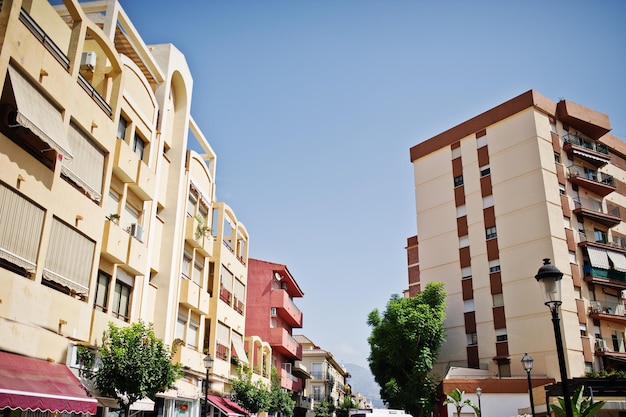
Have you ever considered living in Turkey? It’s not surprising if you have. Many people visit this incredible country, fall in love with it, and immediately think about relocating. Turkey offers many advantages, far more pros than cons, but it’s always essential to weigh everything before deciding.
I lived in Turkey for several years and look back on it fondly. There are so many fantastic places to visit and experiences to be had, although there are some downsides to living there as well. Given that my husband is from Turkey, I still visit regularly and can help you decide if moving there is the right choice for you.
Living in various locations around Turkey for years, I experienced a lot. The positives definitely outweigh the negatives, but the cons can be frustrating. Your gender doesn’t matter; it’s easy for foreign women to live in Turkey without much trouble. However, there are things you might not expect that can be problematic.
Turkey is uniquely positioned, partly in Europe and mostly in Asia, often called a bridge between Europe and the Middle East. This blend is evident in its culture and traditions. Istanbul, the only city in the world that spans two continents, is a must-see.
Most people don’t realize how large Turkey is. It’s a massive country covering 783,562 square kilometers, featuring large cities, small towns, villages, deserts, forests, and beautiful beaches. While Ankara is the capital, Istanbul is the largest and most visited city.
Turkey shares borders with Greece, Bulgaria, Syria, Iran, Iraq, Georgia, Azerbaijan, and Armenia and has long coastlines. Many visit Turkey’s coastal resorts like Bodrum, Antalya, and Marmaris in the summer. But don’t overlook cities like Izmir and Istanbul, or inland gems like Cappadocia and Ankara, and the northern Black Sea Coast.
Turkey seamlessly blends modern living with traditional, conservative areas, particularly in the east and southeast. These regions may be harder to visit but offer hidden gems and amazing food.
Starting with the positives, one of the main advantages of living in Turkey is its rich culture, which varies across regions. The western side is quite European, especially cities like Izmir, while southern beach resorts are international. Istanbul offers a mix of old and new, while eastern areas preserve centuries-old traditions passed down over generations.
Despite traditions, I always felt accepted in Turkey. Even in more conservative areas, participating in local life and discovering new facets of traditional living was an enriching experience.
Turkey is a historical treasure trove. From ancient cities like Cappadocia and Ephesus to natural wonders like Pamukkale and Mount Nemrut, there’s no shortage of places to explore. Summer months are perfect for visiting beautiful beaches in the Antalya region.
Istanbul alone has countless sights such as Hagia Sophia, the Blue Mosque, and Topkapı Palace. Living in Turkey gives you the time to explore these attractions at your own pace.
One of the biggest perks for me was the food. Turkish cuisine is some of the best in the world, offering something for everyone—meat-eaters, vegetarians, and vegans. Turkey is famous for its myriad kebabs, but local cuisine includes delicious stews, fresh produce, and hearty breakfasts. Street food is cheap and tasty, and traditional restaurants offer diverse grilled meats and vegetable-based dishes.
The cost of living in Turkey has risen but remains lower than in most of Europe. Renting a one-bedroom apartment in a major city costs around 10,000-15,000 TL ($340-$500), with utilities extra. Eating at home and shopping at local bazaars keeps expenses down. Life near the sea is particularly enjoyable, offering an outdoor lifestyle with lots of beach time.
The cost of living for Turks isn’t cheap due to low minimum wages, but it’s affordable for those with savings in another currency. Expats often find it easy to settle in, especially in cities like Marmaris, Fethiye, and Izmir, which have substantial foreign communities.
Initially, I found cultural differences a bit shocking, but connecting with other expats helped me adjust. Turkey has a vibrant expat community offering support and advice on settling in, dealing with paperwork, and overcoming other challenges.
Turkey’s summer weather is fantastic, with minimal rain and plenty of sunshine. Coastal areas like Antalya can get extremely hot, but winters in places like Fethiye are mild. If you dislike cold weather, Turkey’s southern coast is an excellent option during winter.
Turkey’s healthcare system is top-notch, accessible to foreigners with residency permits. With state insurance (SGK), you’re covered in public hospitals, but private health policies are also available. Turkish hospitals usually have interpreters, especially in larger cities and tourist areas.
Turkish people are generally very friendly and helpful. Learning a few basic Turkish phrases can go a long way in getting along with locals and making daily interactions smoother. Contrary to some stories you might read, Turkey is quite welcoming to foreigners.
Safety in Turkey is relatively high, with low to moderate crime rates and a visible police presence in major cities. Basic precautions like avoiding unfamiliar areas at night and not flashing valuables apply, but overall, I always felt safe.
Public transport in Turkey is excellent, meaning you don’t necessarily need a car. Buses, trains, ferries, and domestic flights connect various parts of the country efficiently. While driving isn’t necessary, public transport offers many options for getting around.
However, there are some downsides. The concept of “Turkey time” means things often run late, and bureaucracy can be slow and cumbersome. Dealing with paperwork and official processes often requires patience and multiple visits.
English is widely spoken in major towns and cities, but not everywhere. Learning some basic Turkish is advisable to ease communication, mainly in rural areas. Google Translate can be handy, but knowing the language helps significantly.
Visa issues can be a major drawback as getting a residency permit has become harder. Rules are constantly changing, so keeping up-to-date with the latest information is crucial.
Distances between major attractions can be vast, complicating travel plans. You might need to spend several hours traveling to reach certain places. It’s important to factor in these travel times, especially for appointments or specific tasks.
One significant downside is the difficulty in obtaining work permits. Foreigners typically find work as holiday reps or English teachers. Working without a permit is risky and not advisable.
Despite these challenges, the advantages of living in Turkey far outweigh the negatives. With the right information and some perseverance, overcoming these hurdles is possible. If you’re considering making Turkey your home, you’ll likely find it a rewarding and enriching experience.
